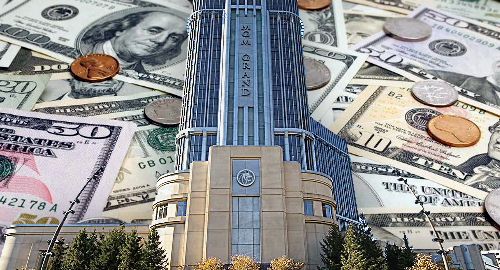 Detroit’s three commercial casinos reported a modest revenue increase in 2017, despite the city’s largest operator reporting flat numbers.
Detroit’s three commercial casinos reported a modest revenue increase in 2017, despite the city’s largest operator reporting flat numbers.
Figures released Tuesday by the Michigan Gaming Control Board showed the state’s three commercial casinos earned combined revenue of $1.4b last year, a 1.1% improvement over 2016’s $1.385b. Slots accounted for 81% of 2017’s overall casino revenue.
The figure marks the city’s second straight year of modest growth but still well shy of the market’s peak of $1.42b set in 2011. The city’s share of casino revenue and development agreement payments totaled $177.4m. Detroit, which declared bankruptcy in 2013, derives as much as 16% of its municipal government income from its three casinos.
MGM Grand Detroit didn’t contribute to the year-on-year gain, as its $592.2m revenue was up only 0.01% from 2016. The MGM venue’s share of 2017’s overall revenue pie slipped one point to 42%.
The Illitch family-owned MotorCity Casino ranked second on the 2017 revenue chart with $478.6m, a 2.3% gain from 2016. Despite the gains, MotoCity’s market share remained static at 34%.
Jack Entertainment’s Greektown Casino brought up the rear with $329.7m, up nearly 1.3% year-on-year, while its market share gained one point to 23%.
Michigan also has 23 tribal casinos operated by 12 different tribes. All of Michigan’s licensed casino operators could potentially be offering online gambling products depending on the fate of legislation introduced last September.
The Detroit casinos, which had expressed neutral positions on previous online bills, offered their support for the current proposal following changes to tax rates and server location requirements. However, the tribes appear to be a tougher sell, and the state would be required to negotiate separate gaming compacts with each individual tribe.